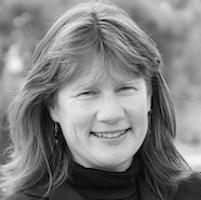Campus News
New teaching center brings expert on campus climate to campus
The new Center for Innovations in Teaching and Learning (CITL) at UC Santa Cruz celebrates its inaugural convocation on May 18 with a visit from alumna Susan Longerbeam (Merrill, ’84), a specialist in classroom cultural climate issues.


The new Center for Innovations in Teaching and Learning (CITL) at UC Santa Cruz celebrates its inaugural convocation on May 18 with a visit from alumna Susan Longerbeam (Merrill, ’84), a specialist in classroom cultural climate. Longerbeam, associate professor of educational counseling psychology at the University of Louisville, studies the role of culture in higher education pedagogy. Her particular emphasis is on how taking into account the diverse cultural origins of students and instructors in classroom settings can improve teaching and enhance learning on campuses nationwide.
As schools and universities around the country have become increasingly diverse, with students from multiple backgrounds and different nationalities learning side by side in many college classrooms, scholars have begun considering how to support and enhance what is sometimes referred to as the “classroom cultural competence” of both faculty and students. Research suggests students’ cultural origins can strongly affect how they learn, individually and with their peers, and may also play a significant role in determining why they came to college in the first place.
Are students pursuing a college education for the betterment of their families, to “represent” their communities, because their parents and grandparents got higher degrees, or to fulfill individual professional goals? Do they learn through abstract theories or worldly examples? Do they learn better alone or in groups? Which course formats—lecture, seminar, flipped, mixed, online, small group—feel most accessible to students from a particular cultural or national background, and which may require support or additional preparation? At the same time, instructors in college classrooms bring a range of assumptions to their teaching practice, many of which are based on their own cultural and educational backgrounds. Becoming more aware of these assumptions through a practice Longerbeam calls “cultural introspection” can contribute powerfully to the ability to communicate effectively with a classroom full of students who may not share the instructor’s background or cultural assumptions.
Longerbeam’s model is an affirmative one, as evidenced by the title of her most recent book, co-authored with Alicia Fedelina Chávez, Teaching Across Cultural Strengths (Stylus, 2016). Longerbeam and Chávez encourage teachers to reflect deeply on the cultural and educational norms they grew up with, and to balance “integrated” and “individuated” models of learning in their classroom. In practice, this means paying more attention than previous generations of professors may have done to how learning happens in the lab, seminar room, or lecture hall, in addition to what is taught in those varied settings. Faculty who engage in this kind of cultural introspection and pedagogical inquiry, while being sensitive to their students’ multifarious cultural backgrounds, will likely be the most successful in encouraging learning in culturally diverse groups of students.
While on campus, Longerbeam will be engaging in discussions and workshops with the many groups already working on classroom climate issues at UC Santa Cruz, including the Hispanic Serving Institution (HSI) Working Group and a group of students, faculty, and staff members calling themselves the Classroom Cultural Competence Collective, which began meeting last fall. In addition, Longerbeam will meet with Jody Greene, founding director of the CITL, and sociology doctoral candidate Christie Mccullen, one of the CITL’s graduate student researchers, to assist with the development of a series of classroom cultural fluency workshops for faculty and graduate students, which the CITL will begin offering in 2017–18.
Longerbeam will deliver the keynote address at the inaugural celebration for the CITL at 6 p.m., May 18 in the Bhojwani Dining Room at the University Center. She will address faculty, students, staff, alumni, and educators from the community on the topic, “Teaching Across Cultural Strengths,” while giving participants an opportunity to engage in cultural introspection and to reflect on their own teaching and learning practices.
The evening is free and open to the public.